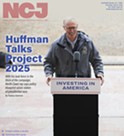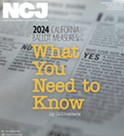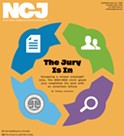The Election's Over, Where Does The Money Go?
By Grant Scott-Goforth [email protected] @GScottGoforth[
{
"name": "Top Stories Video Pair",
"insertPoint": "7",
"component": "17087298",
"parentWrapperClass": "fdn-ads-inline-content-block",
"requiredCountToDisplay": "1"
}
]
Money's influence on elections will never cease to be contentious. Often, campaigns are strapped for cash, particularly in the last days of an election. But other times, a campaign's fundraising has been so effective that there's leftover money on the Wednesday after the vote. Where does that unspent money go?
California law restricts what money donated to a campaign can be spent on. Candidates are essentially limited to goods and services necessary to a campaign: Travel, staff, office rentals, advertising — even security systems, if a candidate has received threats verified by law enforcement.
Campaign funds for the upcoming June primary election will become surplus, according to the Fair Political Practices Commission, after June 30. That money can then only be spent on outstanding campaign debts, professional services or attorneys’ fees from the campaign, refunded to contributors, donated to a charity (as long as the donation won’t benefit the candidate, his or her family or the campaign treasurer), donated to a political party for non-election purposes, or donated to any ballot measure, to a candidate for federal office or any state office outside California.
Surplus funds cannot, FPPC rules state, be used for the fundraising candidate’s future campaign. But there is a grace period, between Election Day and June 30, during which a candidate can redesignate funding to another campaign, whether it be to the candidate’s future election bid or another campaign altogether.
Chris Kerrigan had raised more than $1,000 before abandoning his bid for Eureka Mayor, filing termination papers for that race and announcing he would run for 4th District supervisor in March, according to campaign finance reports and Eureka City Clerk Pam Powell. With his bid for supervisor apparently lost, Kerrigan could, theoretically, put any money left over from that campaign toward a run for mayor in November.
Days before the election, Kerrigan said he wasn’t “at all” considering running for mayor, since he was focused on the current campaign and confident he would win. He wouldn’t say if “not considering” meant he definitely would not run.
Whether Kerrigan even has leftover campaign funding is unclear. His campaign disclosure forms through May 17 show he had $6,000 in cash — a sum that could easily be spent on last minute ad buys.
Virginia Bass, the 4th District’s incumbent supervisor, had a more significant ending cash balance of $26,000 in mid- May.
College of the Redwoods political science professor Ryan Emenaker said there’s debate about whether losing an election makes a candidate “damaged goods” for a future election. But he thinks name recognition is an important factor, and said Kerrigan’s campaigning for supervisor would be beneficial should he consider a run for mayor. “The jurisdiction overlaps really well,” Emenaker said. “It really is kind of a parallel campaign.”
more from the author
-
Flamin' Hot's Stale Corporate Propaganda
- Jun 15, 2023
-
Hell is Visiting Other People
- Sep 22, 2022
-
The Bear Roars
- Aug 18, 2022
- More »
Latest in News
Readers also liked…
-
Through Mark Larson's Lens
A local photographer's favorite images of 2022 in Humboldt
- Jan 5, 2023
-
'To Celebrate Our Sovereignty'
Yurok Tribe to host gathering honoring 'ultimate river warrior' on the anniversary of the U.S. Supreme Court ruling that changed everything
- Jun 8, 2023
































